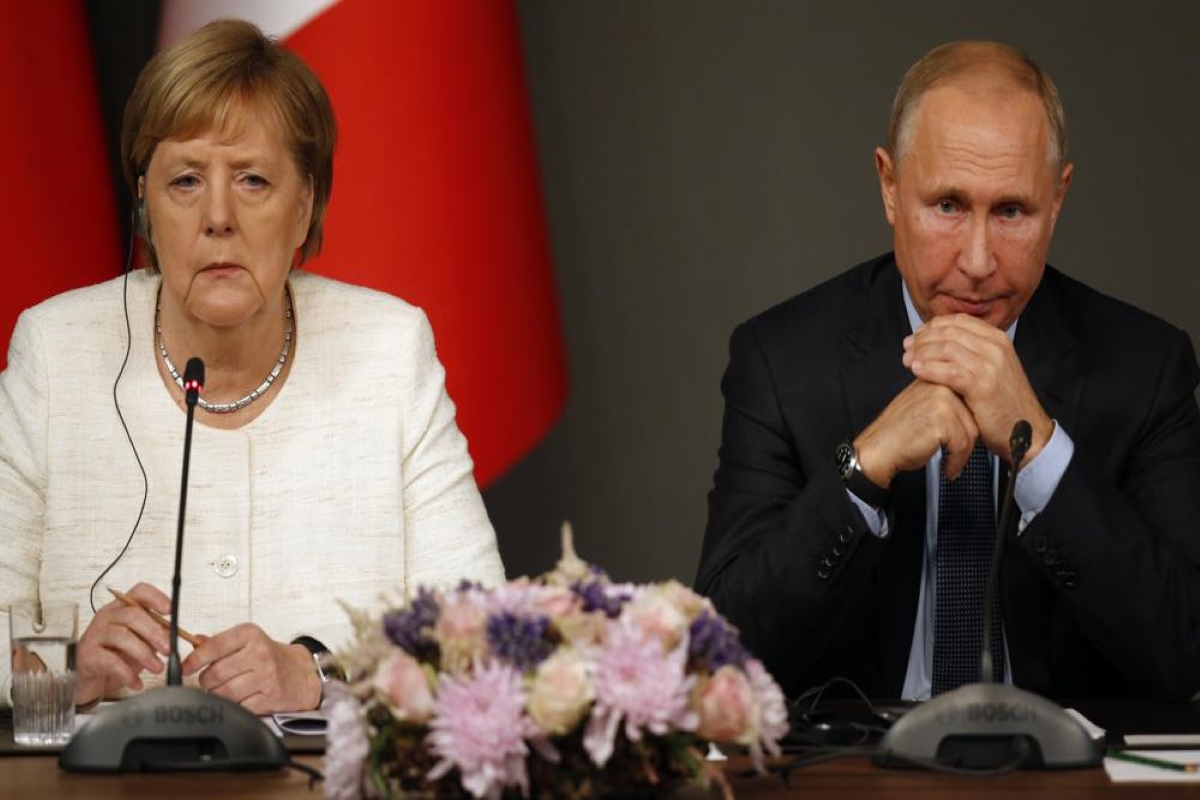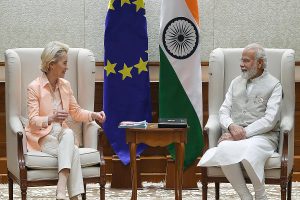As her stint comes to an end, German Chancellor Angela Merkel and Russian President Vladimir Putin are set to hold talks in Moscow on Friday amid the crisis unfolding in Afghanistan and as tensions prevail between the two countries over Alexei Navalny and Ukraine.
The gas pipeline between Russia and Germany opposed by the US will be another issue in their meeting.
Advertisement
The talks will figure the repression of dissent in Belarus, and allegations that the Belarusian government has channeled migrants into Latvia, Lithuania and Poland to destabilise the European Union.
Merkel and Putin has managed to maintain a line of communication over the years despite their many political differences.
Friday’s talks in Moscow will “surely be about the big outstanding international questions,” Merkel spokesman Steffen Seibert told reporters in Berlin earlier this week. “Obviously Afghanistan. Furthermore, the conflict in eastern Ukraine, for the solution and settlement of which Russia could do much more.”
“Belarus, a country, a dictator, who goes against his own people in the worst kind of way and on whom the Russian leadership has influence as we believe,” Seibert added as he listed possible talking points.
Merkel is heading to Russia on the anniversary of Navalny falling gravely ill while on a plane flying over Siberia on 20 August 2020. The opposition leader was transferred for medical treatment to Germany, where officials said tests revealed he had been poisoned with a Soviet-developed nerve agent.
Navalny, Putin’s most outspoken critic, spent five months in Germany recovering and blamed the poisoning on the Kremlin. Russian authorities have rejected the accusation.
“This still unsolved case is putting a very severe burden on the relationship to Russia,” Seibert said. “Mr Navalny is wrongfully imprisoned.”
Russia’s Foreign Ministry released a lengthy statement Wednesday about “the Navalny case,” charging that actions by “Germany and its allies” over the past 12 months indicated “a planned provocation aimed at discrediting Russia in the eyes of the global community and at damaging its national interests.”
The ministry accused Berlin of failing to provide evidence that would support their “brazen allegations” that Navalny was poisoned with a nerve agent.
Despite his and Merkel’s years of experience as leaders and with each other, experts are skeptical Friday’s meeting will improve the ties between Germany and Russia.
Fighting between Russia-backed separatists and government forces in eastern Ukraine erupted after Russia’s 2014 annexation of Ukraine’s Crimea and has left more than 14,000 dead.
Efforts to negotiate a political settlement under the 2015 Minsk agreements brokered by France and Germany have stalled, and the EU has imposed sanctions against Russia for failing to live up to its peace commitments in Ukraine.
Merkel plans to travel back to Berlin on Friday night and to head to Kyiv on Sunday to meet with Ukrainian President Volodymyr Zelenskyy.
Another topic of discussion with Putin will likely be the nearly finished Nord Stream 2 pipeline that will carry natural gas from Russia to Germany. The project has angered the United States and some European countries, but the U.S. and Germany announced a deal last month to allow its completion.
Regarding Belarus, Merkel earlier this week accused President Alexander Lukashenko of a “hybrid attack” against the EU by encouraging migrants to cross the borders into Lithuania, Latvia and Poland in retaliation to the EU’s sanctions against Belarus.
Merkel said she would raise the topic with Putin.











